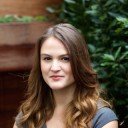If there is one word that sums up what we need right now, it is connection. This need has united us through Covid – the lockdowns, isolation, quarantines, and loss. But this pandemic, for all of its challenges, has also created a unique opportunity for a handful of causes. It has shone a light on visceral issue of isolation and the associated decline in our collective mental health. And it has simultaneously brought about a deeper valuing of the very things we have been denied – authentic interaction and the creative, restorative power of doing things together.
A good example is the acceleration into the limelight of a lesser-known cause this year – the Music for Dementia Campaign, which seeks to improve the lives of people living with dementia through music. Having previously been viewed as a ‘niche’ topic, this cause now finds itself having a moment in the sun, and on the cusp of significant policy change that will affect the social and health care landscape for many years.
There is no doubt that luck and opportunism is partly to play here, but there have been other lessons to share for small foundations with bold visions.
The first lesson – clear from the start – was that we could not and should not go it alone. What we saw from the outset was existing a fragmented ecosystem of solitary actors, often working at cross purposes. To be just another player in that space would not support long term change. The more we learnt about why music was not already embedded in care, the more knew that we could not only stand on the sidelines and fund, but had to bring people together, act as a catalyst and build creative partnerships.
Our second lesson was the importance of establishing trust. In the first instance this took the form of ensuring we had high quality and accurate evidence from scientists. We established a Commission – convening leaders and experts across the political, care, service and research spheres to understand existing provision, collect the latest evidence and establish a baseline. In hindsight, this was a watershed moment that went way beyond information gathering. It was a radical exercise in listening that introduced an unknown foundation as one that was serious and committed to working with others. Listening has served us well in building trust and credibility over time, creating powerful alliances along the way and setting us up to be able to opportunistically emerge as a united voice in the hiatus of 2020.
Expert views are useful, but no more so than listening to beneficiaries. This has been the third and possibly most important lesson. For if we want beneficiaries to be the centre of their own care, active advocates and able to live beyond the label of their condition, then they must be part of the design of interventions. Their experiences have informed our grant-making, partnership working and the development of M4D radio. I believe it is our authentic efforts here that have accelerated our mission into others’ hearts and minds.
Bold and brave vision is essential – but divergent thinking and a commitment to connecting and collaborating are also vital if creative solutions and sustained change is to occur.
As a sector, taking the conscious decision to ensure diversity in thinking and skills within our own teams, as well as with our choice of partners will pay dividends in the end. And if we are truly committed to long term impact then we must continue to create spaces to regularly convene, communicate and cross-fertilise ideas across sectors, organisations and with beneficiaries.
If this year has taught us anything, it is just how much we need each other. In joining the dots and supporting stronger health ecosystems, we are leveraging the power of a myriad of resources, perspectives and talents – and it is in this approach that I feel certain we will be most impactful going forward.
Music for Dementia launched a new Fund to support grassroots organisations working on the frontline on 11 January.
Juliet Cockram is Managing Director of the Utley Foundation whose flagship initiative is Music for Dementia, and Founder of Impact Squared, a consultancy focusing on leadership and philanthropy.






Comments (0)